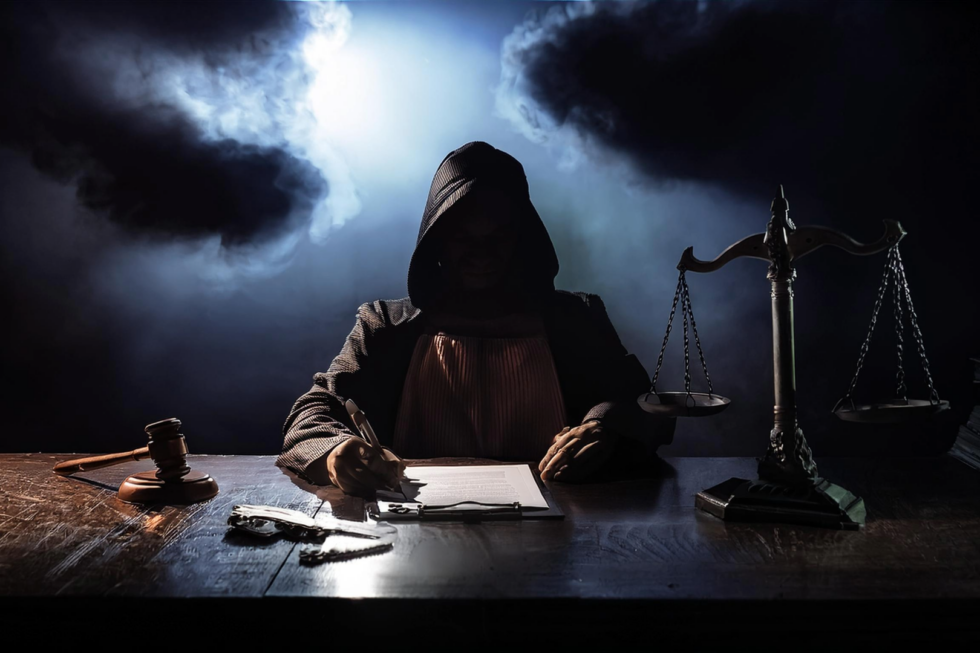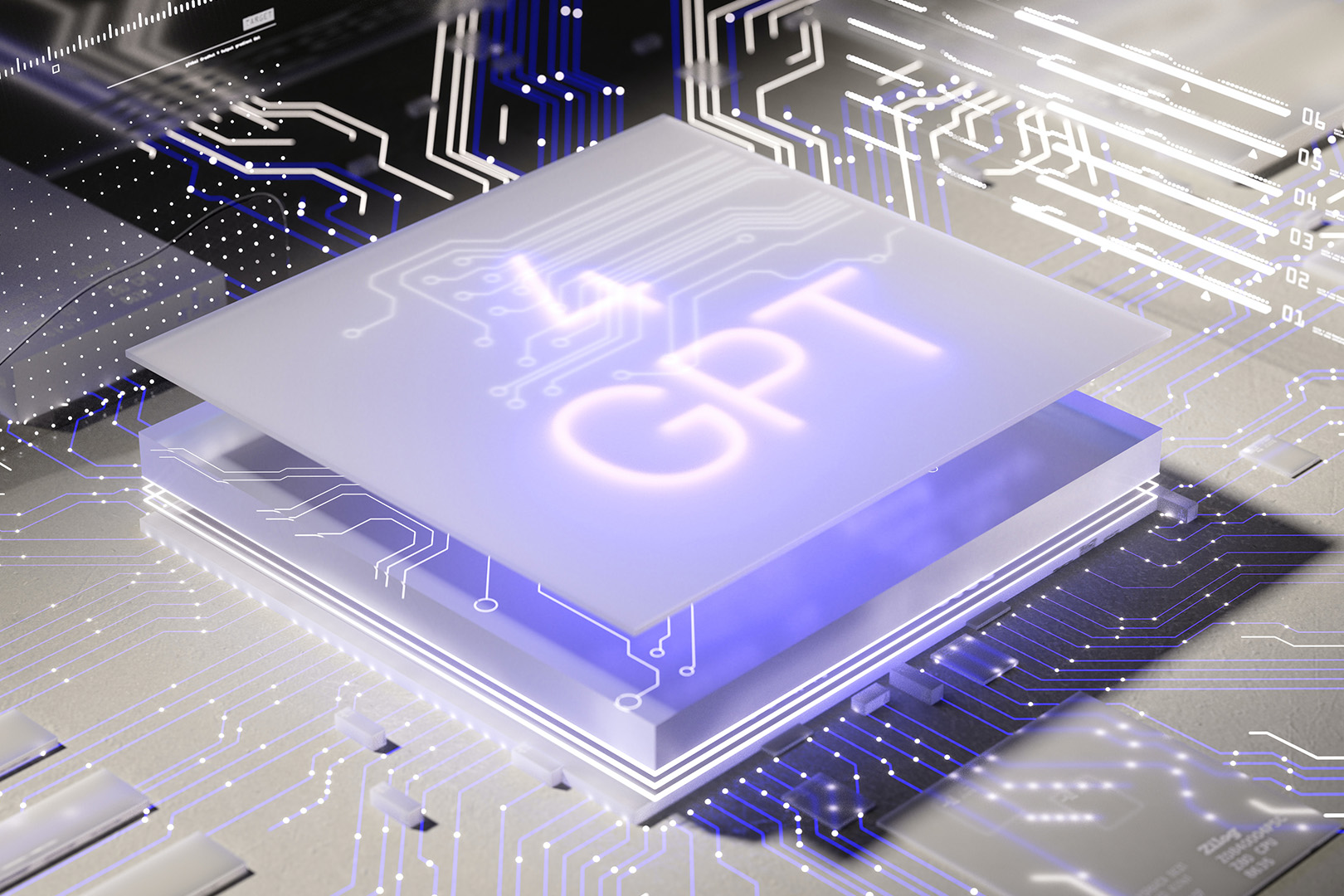
An article published in Innovation Gadfly on September 10, 2024, entitled “The RESTORE Act Fails; Codifies the Effects of eBay,” explained how the RESTORE Act only shifts the burden of who has to prove that an injunction is warranted. Since RESTORE does not abrogate the eBay Factors, the eBay Factors will continue to determine the fate of injunctive relief and are effectively codified by RESTORE.
eBay v MercExchange (eBay) did two important and distinct things. It created a four-factor test (eBay Factors) that courts are mandated to follow before granting an injunction, and it places the burden on the patent owner to show how it survives the eBay Factors. These are distinct and different issues.
Adam Mossoff, Professor of Law at Antonin Scalia Law School, George Mason University, took issue with the accuracy of the Innovation Gadfly article in a podcast interview by Aurora Patents (Podcast). Mossoff argues RESTORE explicitly and fully abrogates eBay’s burden-shifting and the eBay Factors (Podcast at 2:06, 4:55, 17:36). He asserts that RESTORE returns the law of injunctive relief to the state it was prior to eBay (Podcast at 0:08, 1:40, 2:28, 15:20. 17:36). These assertions are false.
RESTORE Merely Shifts the Burden
RESTORE puts in place a rebuttable presumption that the patent owner “should” be granted an injunction, which clearly shifts the burden back to the adjudged infringer to rebut the presumption:
“REBUTTABLE PRESUMPTION. — If, in a case under this title, the court enters a final judgment finding infringement of a right secured by patent, the patent owner shall be entitled to a rebuttable presumption that the court should grant a permanent injunction with respect to that infringing conduct.’’
This one sentence no doubt abrogates eBay’s burden-shifting problem, but the eBay Factors are not addressed.
The eBay Factors
The eBay Factors:
“That test requires a plaintiff to demonstrate: (1) that it has suffered an irreparable injury; (2) that remedies available at law are inadequate to compensate for that injury; (3) that considering the balance of hardships between the plaintiff and defendant, a remedy in equity is warranted; and (4) that the public interest would not be disserved by a permanent injunction. The decision to grant or deny such relief is an act of equitable discretion by the district court, reviewable on appeal for abuse of discretion.”
eBay Factor (1) is the subject of several discussions below.
RESTORE Operative Language Does Not Abrogate the eBay Factors
Mossoff explains that eBay mandates the courts to evaluate injunctive relief under the eBay Factors (Podcast at 21:06). He asserts that RESTORE “explicitly abrogates” the eBay Factors. However, eBay is not mentioned, nor are the eBay Factors mentioned or described. RESTORE, therefore, cannot explicitly abrogate eBay.
Regardless, Mossoff explains that RESTORE can abrogate eBay without naming eBay. To show an example of this, Mossoff references the 1952 Patent Act’s addition to Section 103 of the sentence, “Patentability shall not be negated by the manner in which the invention was made”. This sentence effectively abrogated the flash of the genius doctrine of Cuno Engineering v. Automatic Devices (Cuno) without having to explicitly name Cuno. It did that because the flash of genius test was a “manner in which the invention was made.” By excluding the “manner in which an invention is made” from the analysis of 103, Cuno’s flash of genius doctrine was abrogated.
Mossoff is correct that Cuno was abrogated without explicitly naming Cuno. However, RESTORE can only similarly abrogate eBay if its language prevents the use of the eBay Factors.
Mossoff repeatedly asserts that RESTORE’s one-sentence rebuttable presumption abrogates eBay in the same way that the 1952 Patent Acts’s one-sentence addition to 103 abrogated Cuno (Podcast at 5:11, 15:43, 22:56, 26:26).
eBay Factor (1) assesses whether the patent owner has suffered irreparable harm. If Mossoff is right and RESTORE abrogates the eBay Factors, it must contain language that prevents the use of the eBay Factors. Unfortunately, the language of RESTORE’s operative single sentence merely shifts the burden to the adjudged infringer; it fails to address anything related to eBay Factor (1) or any of the other Factors.
Mossoff explanation fails because RESTORE’s language does not prevent the use of the eBay Factors.
RESTORE’s Findings Codifies the eBay Factors
However, Mossoff claims there is a second way that RESTORE abrogates the eBay Factors. He says that if a court is confused about the meaning of the operative language, it will go to the Findings. (Podcast at 17:00). He explains that the Findings abrogate eBay (Podcast at 2:06, 4:55, 17:36).
The eBay Factors effectively require a patent owner to have a product on the market before a court can grant an injunction, creating substantial damage to U.S. innovation. (For an explanation, go here.).
RESTORE’s first four Findings are a banality of the patent system and have nothing to do with the eBay Factors.
RESTORE’s first four Findings mirror this damage:
“(1) Securing effective and reliable patent protection for new technologies is critical to maintaining the competitive advantage of the United States in the global innovation economy.
(2) The Constitution of the United States empowers Congress to grant inventors the “exclusive Right” to their inventions in order to “promote the Progress of Science and the useful Arts.”
(3) The right to prevent others from making, using, offering to sell, selling, or importing a patented invention without authority from the inventor is the core of the patent right, ensuring that an inventor enjoys, for a limited time, the sole benefit of the inventor’s invention or discovery.
(4) Congress and the courts of the United States have long secured the constitutionally protected patent right through the traditional equitable remedy of an injunction.”
According to Mossoff, prior to eBay, the criteria for a court to grant an injunction was proven infringement on a not invalid patent. Irreparable harm to the patent owner was not considered until eBay.
However, RESTORE Finding (5) brings eBay Factor (1), irreparable harm, into play for the first time:
“(5) Given the irreparable harm that is caused by multiple acts of infringement or willful infringement of a patent, courts historically presumed that an injunction should be granted to prevent such acts, with a burden on defendants to rebut such a presumption with standard equitable defenses.
(6) Recently, courts have ended the approach described in paragraph (5), which contradicts the traditional, historical practice governing the equitable remedy described in that paragraph.”
Currently, eBay Factors are the standard equitable defenses in patent cases. Under current law, eBay Factor (1) mandates an assessment of whether the patent owner has suffered irreparable harm, along with the other eBay Factors. The adjudged infringer then counters using the eBay Factors.
RESTORE reverses the burden. The rebuttable presumption means the patent owner simply needs to ask for an injunction with no justification. However, the rebuttable presumption coupled with Findings (5) and (6) means the patent owner is presumed to have been irreparably harmed. eBay Factor (1) is an assessment of whether the patent owner has suffered irreparable harm. This means that the adjudged infringer must respond with at least eBay Factor (1) to overcome the rebuttable presumption.
The simple fact is that RESTORE’s Findings explicitly codify eBay Factor (1) but is silent on the remaining eBay Factors. However, the eBay Factors are mandated, and nothing in RESTORE changes that. Obviously, the eBay Factors carry through and will be argued to overcome the rebuttable presumption.
Further showing that the eBay Factors are codified in RESTORE, Findings (7) state that eBay’s problem is burden shifting. It does not explain that the eBay Factors caused the problem.
“(7) Eliminating the traditional, historical equitable practice of applying a rebuttable presumption of injunctive relief in the case of continuing acts of infringement or willful infringement of a patent has—
(A) substantially reduced the ability of patent owners to obtain injunctions to stop continuing or willful infringement of patents; and
(B) created incentives for large, multinational companies to commit predatory acts of infringement, especially with respect to patents owned by undercapitalized entities, such as individual inventors, institutions of higher education, startups, and small or medium-sized enterprises.”
RESTORE’s Findings in (7) explain that the substantial damage to patent owners and the incentives for predatory infringement are solely caused by eBay’s burden reversal to the patent owner, not because the eBay Factors are also damaging. Since eBay Factor (1) is codified and RESTORE is silent on the remaining eBay Factors, the court must assume Congress intends the eBay Factors to be carried through.
The Court’s Mandate to Use the eBay Factors Carries Through
Mossoff’s final argument that eBay is abrogated is that the rebuttable presumption puts a thumb on the scale toward granting an injunction. After all, the defendant has already been found to be violating someone’s rights by trespassing, often knowingly trespassing. Court won’t put weight on the eBay Factors because the presumption shifts the burden to the adjudged infringer. Mossoff says courts are “commonsensical”. (Podcast at 9:48)
Mossoff is right – the courts will follow the law. Therefore, the courts will not interpret RESTORE to abrogate the eBay Factors. If they follow the law as it is written, they can’t do that. The only reasonable interpretation of RESTORE is that it reverses the burden, but eBay’s mandate that the court use the eBay Factors carries through.
RESTORE Does Not Return the Law Injunctions to Pre-eBay
In Mossoff’s recent paper entitled “Injunctions for Patent Infringement: Historical Equity Practice Between 1790 – 1882”, (Mossoff Paper) he presents the law on injunctions prior to eBay on page 2: “In the 899 opinions in Federal Cases by federal courts sitting in equity in lawsuits filed between 1790 and 1880, no judge applied a four-factor test for issuing an injunction, either for a permanent or a preliminary injunction. […] Courts awarded permanent injunctions in 91% of the cases in which the defendant was found to infringe a patent that it failed to invalidate. Courts granted these injunctions by applying the same legal doctrines they applied when redressing continuing trespasses of real property, protecting patents as much as they protected real estate and other property interests.” Mossoff confirms this second point in the Podcast (Podcast at 0:11).
RESTORE cannot return the law of injunctive relief to its state prior to eBay because RESTORE codifies the eBay Factors, which did not exist prior to eBay.
RESTORE is Bad Law
RESTORE is a product of the corporate lobby, whose members benefit from stealing the inventions of inventors and startups. They need to preserve the eBay Factors to successfully execute their predatory business models.
Many so-called experts, whose credibility has been purchased by the corporate lobby, are making misleading arguments for their paymasters to sell RESTORE (and PERA and PREVAIL too).
It does not take a judge or law school professor to understand that RESTORE codifies the eBay Factors. If RESTORE passes, U.S. innovation will remain handicapped in ways no other country handicaps its own innovation engines, and the U.S. will lose yet another generation of innovation to China.
Paul Morinville is Founder and Executive Director of SPARK Innovation. SPARK Innovation strives to create an policy environment where the conception, protection, and commercialization of technologies critical to our economic and national security prosper thereby enabling the United States to take back the global technological lead from China. Paul is an inventor and has been an executive at multiple technology startups including computer hardware, enterprise middleware, video compression software, artificial intelligence, and medical devices, and has licensed patents in the U.S. and China.







Congress ought to be more clear. If eBay factors are entirely abrogated, they should say so. If partially abrogated, they should say that, too. Here’s clearer language, setting out who needs to prove what, in a way that better captures the intent of Congress:
“Upon the finding of infringement, an injunction shall issue unless the infringer can show, by clear and convincing evidence, a substantial hardship paired with a substantial public interest in continued infringement.”
Anonymous, my opinion is that an injunction is granted upon a finding of infringement and the patent is not invalid. Only in exceptional cases of national security should the injunction not be granted.
Define public interest. The general public wants a cheap iPhone and could care less that China leads us in 37 of 44 national security technologies. The public interest should be considered moot in light of an inventor’s ability to license technology to manufacturers.